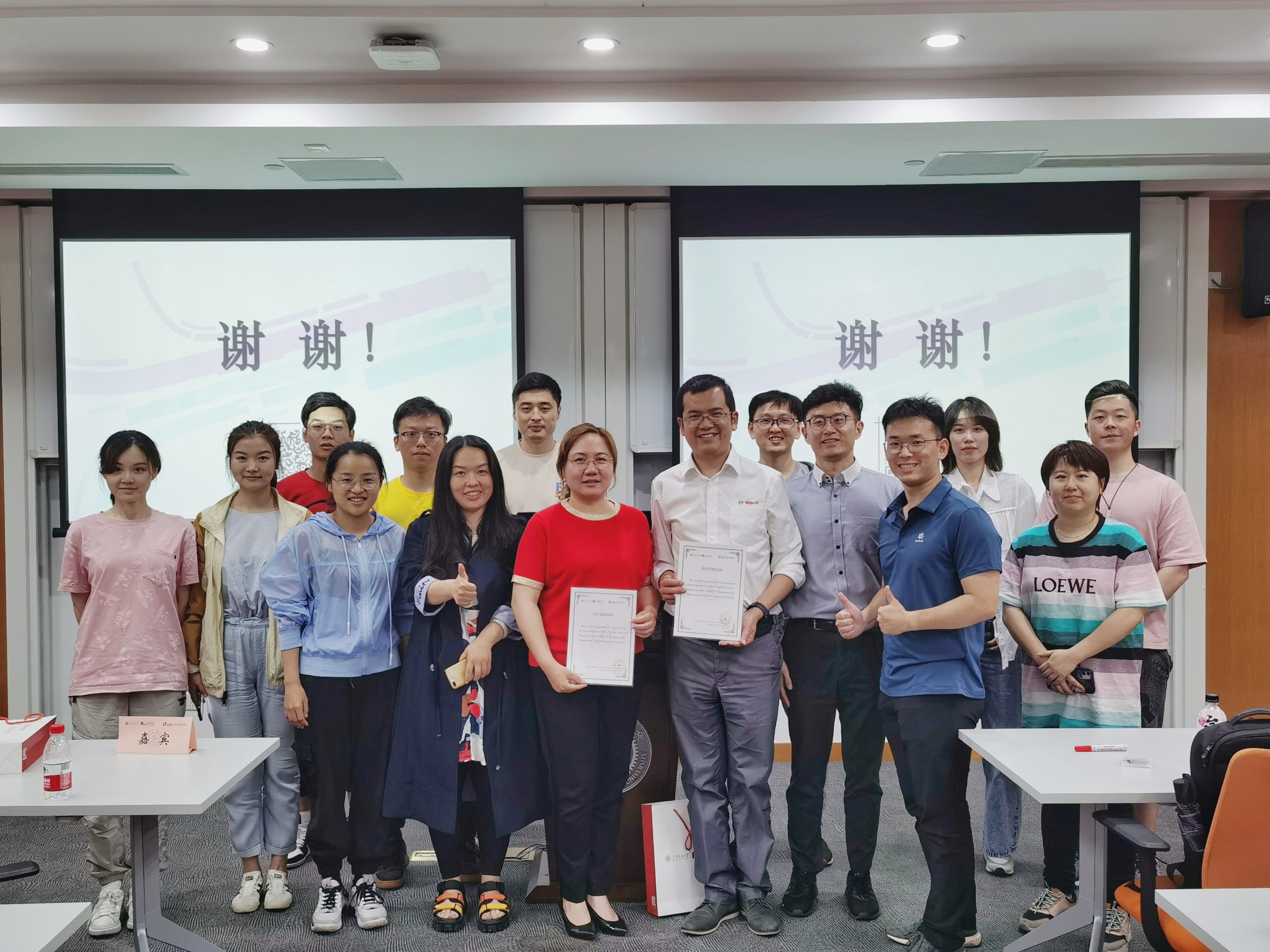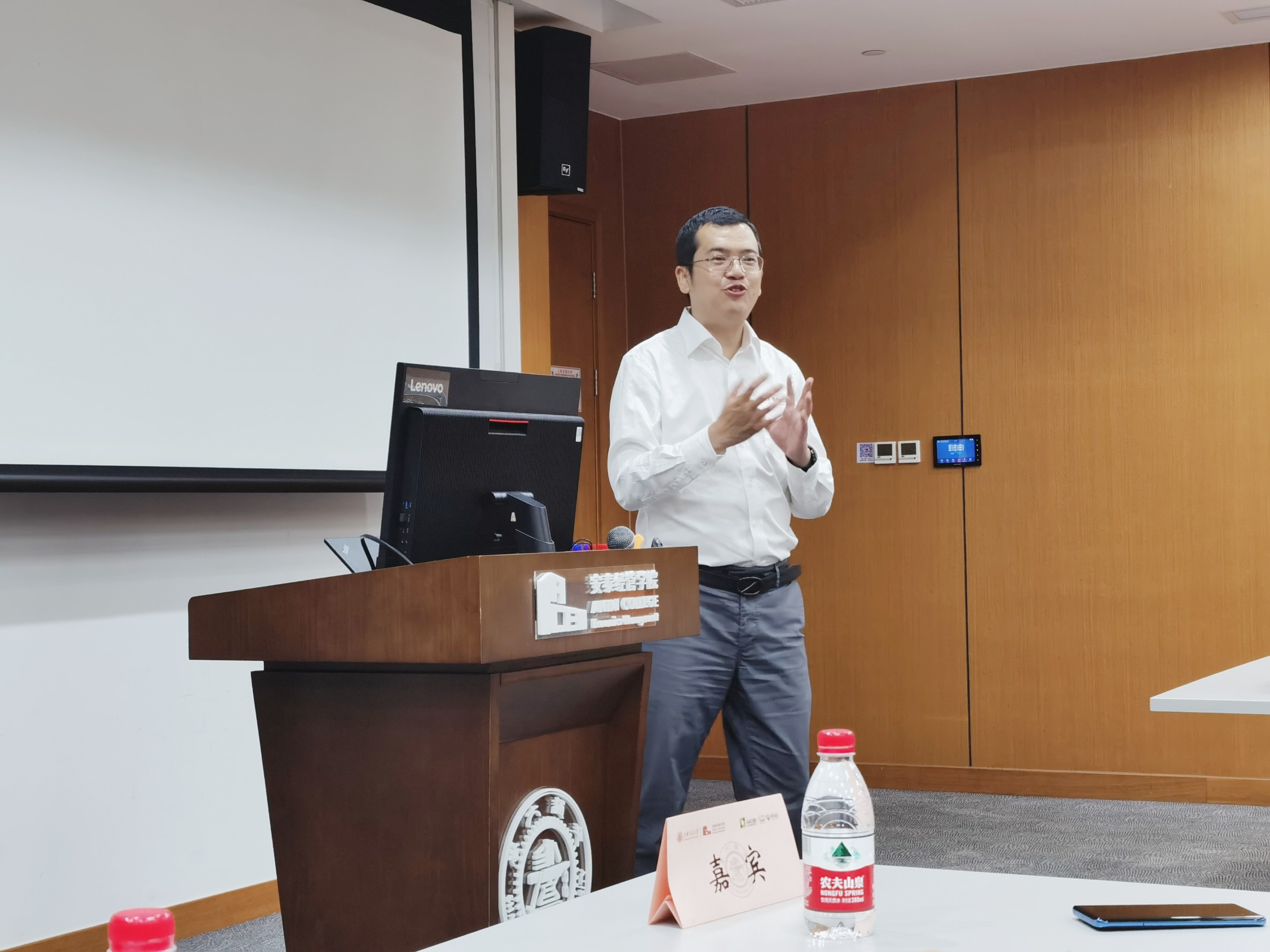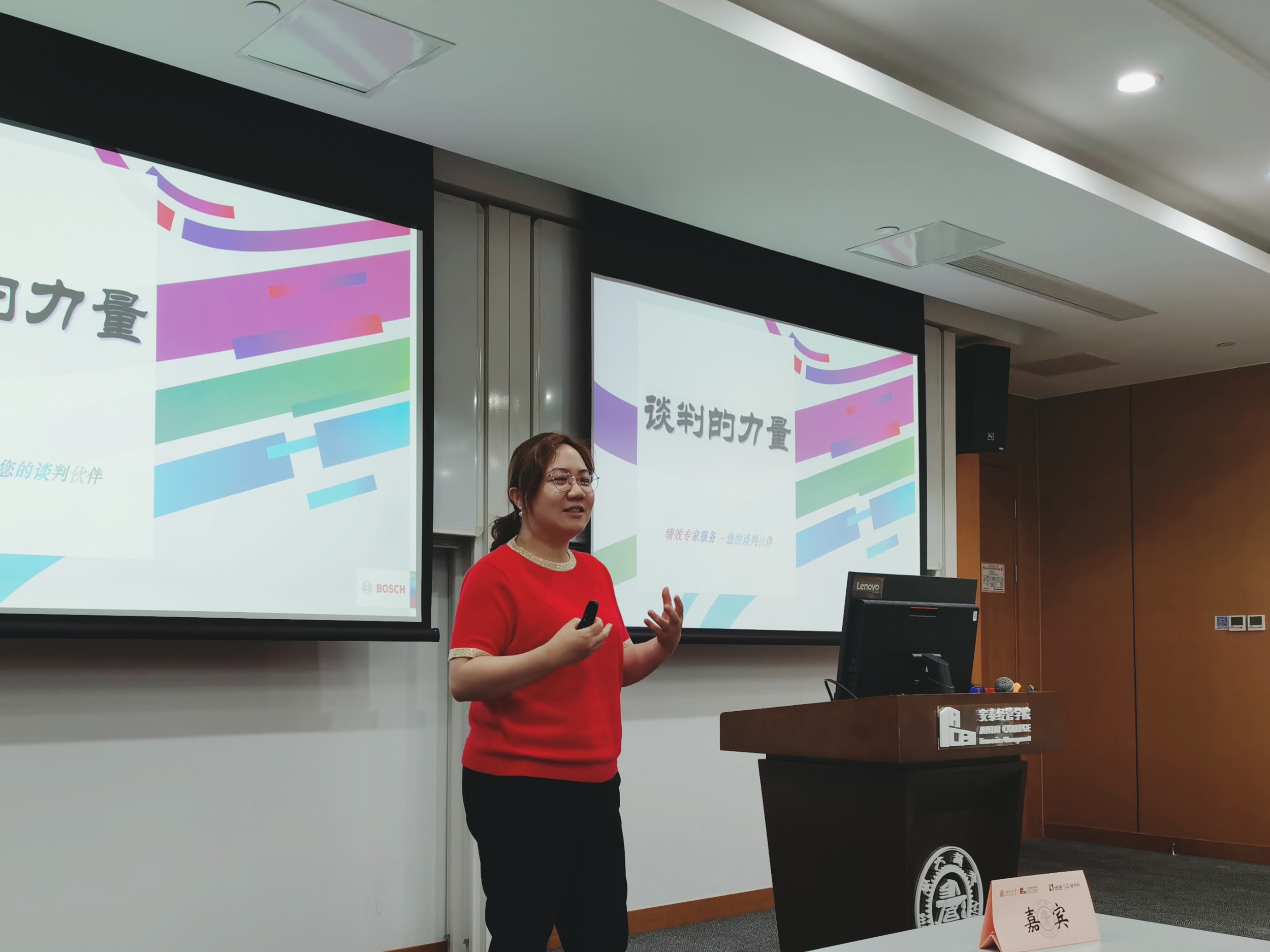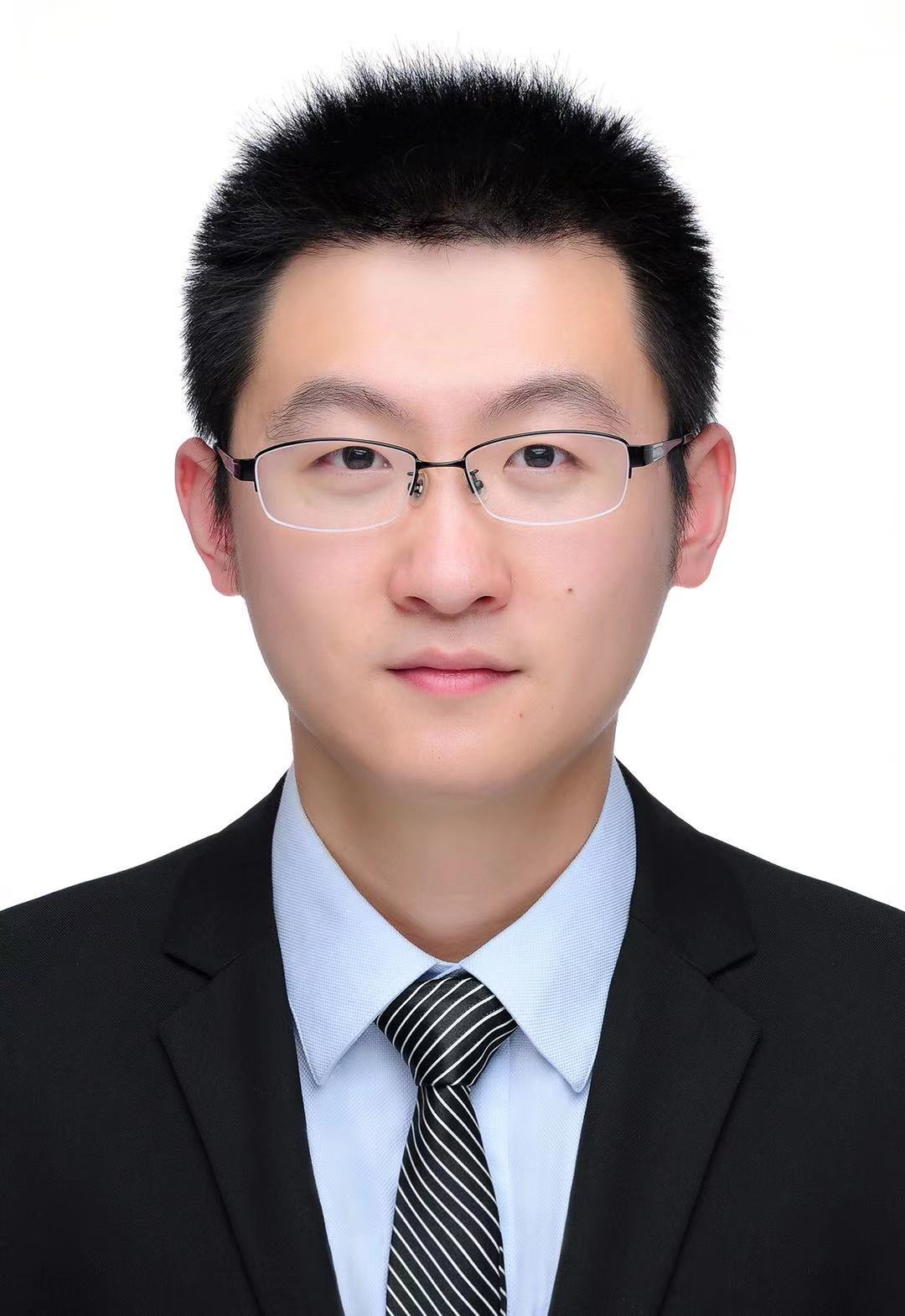"SOIL" 100th Forum: Asia Pacific Supply Chain Director of Bosch Talks About Supply Chain
Time:2021-06-07 Publisher:MBA Office
On May 20,2021,“SOIL” Forum of the China Leaders for Global Operations (CLGO) project of Antai College of Economics and Management (ACEM), Shanghai Jiao Tong University (SJTU) was honored to invite Mr. Chen Long, Director of Asia Pacific Supply Chain and Operational Performance Improvement of Bosch, and Ms. Huang Rong, senior expert, to talk about supply chain with our students.

In China, the Bosch Group manufactures and markets automotive original equipment and aftermarket products, industrial drives and control technology, packaging technology, power tools, household appliances, service solutions, security and communication systems, and thermotechnology. Having established a regional presence in China since 1909, Bosch had some 55,200 associates as of December 31,2019, with the largest number of associates outside Germany. China is also Bosch's second largest market worldwide. In 2020, Bosch China achieved growth against the trend and became the largest market of Bosch Group. It also seeks to lead the future in Artificial Intelligence and Internet of Things, electrification and green hydrogen areas, with deep roots in China and giving back to China..
The two guests interpreted the hot topics in the "supply chain" from a professional perspective, including the payment term of supply chain finance, the popularization of robotic process automation, end-to-end electronic invoices, how to find and fix sources and to negotiate in the procurement field, etc.
Relentless adherence to ideas and values —
Bosch's supply chain management science
With the interactive topic of "what is the purpose of the supply chain," Mr. Chen shared his views on the concept of "the selection of and adherence to ideas and values" from four aspects: supply chain finance, risk management of supply chain, supply chain sustainable development of supply chain and corporate social responsibility.

In the opinion of Mr. Chen, the balance between binding and flexibility, the sensitivity to foreseeable issues and the concept of long-term, stable and sustainable development are the fundamental ways to keep Bosch's supply chain.
First of all, Mr. Chen took Bosch as an example to explain in detail a recent buzz word - supply chain finance. In a supply chain system with Bosch as the core, where the core enterprise has a optimistic capital flow, the supplier can secure funds from banks at a lower cost with the accounts payable from Bosch, which is guaranteed by Bosch's credit. By virtue of its credit, Bosch can use funds in a better and more effective way and revitalize the cash flow of its supply chain as a whole. That is the convenience and superiority of supply chain finance.
This raises two questions: the first one is the threshold for Bosch's suppliers; and the second, how Bosch can be such a trusted enterprise for China's banks.
Mr. Chen said that Bosch has a supplier selection system more systematic and strict than others. Due to its large size, Bosch needs upstream suppliers with a capability to supply a large number of products steadily; the good production flexibility and scattered supply are also required to respond to natural disasters and other force majeure events as well as Covid-19 diseases. That is exactly one of the reasons why Bosch can go against the current in the epidemic while most of the manufacturing industry is depressed; in addition, its suppliers must agree with and implement Bosch's values and ideas, such as its environmental philosophy and its treatment of labor.
Bosch establishes the image of an industry leader with its huge business volume, favorable supplier risk management, excellent values and ideas and strong sense of social responsibility, and makes itself the core of supply chain finance. In particular, Mr. Chen highlighted the importance of corporate social responsibility and some of which seem to be too high standards at present are the guarantee to the stability of the supply chain and conform to Bosch's concept that the supply chain should be "sustainable development."
The alignment of theory and practice —
Bosch's supply chain negotiation science
In the second part of the lecture, Ms. Huang Rong shared supply chain negotiation things in the view of a purchaser from two topics: multi-party negotiation and bilateral negotiation.

The sharing begins with the story of Milgrom and Wilson, both are economists of Stanford University and won the 2020 Nobel Prize in Economics. The auction scheme of the radio-wave spectrum is one of the classic cases designed by them. Ms. Huang talked about the different characteristics of English auction, Dutch auction, Hong Kong auction and sealed bidding one by one. After that, three students were invited as volunteers to experience the different auctions with an interactive game named "Mask Order Bidding". During the game, we found that the auction method is beneficial to both suppliers and purchasers:
1.For purchasers, subjective factors in the decision-making process can be avoided and the final result is determined by procedures, which means competition is increased, letting the most cost-effective supplier be retained.
2.For suppliers, the information transparency and a fair and justice process make them an opportunity to win larger projects and long-term cooperation.
Bosch also introduced reverse auction early in its procurement tender process, which has been applied in many projects to help Bosch finally achieve its business objectives.
In the sharing of the bilateral negotiation, Ms. Huang took negotiation scenes in Billion Coward, a film produced by Mahua FunAge, as an example to introduce various negotiation skills, such as being calm down in the negotiation, making good use of iceberg theory, and having more preparations.
Then, she used the case of Starbucks "add $3 for extra-large cup" to introduce the anchoring effect, explaining why suppliers often say "I won't supply you anymore", and shared the countermeasures with us.
At the end, Ms. Huang extended the art of bilateral negotiation to daily life. She divided the two sides of communication into the "fighting party" and the "escaping party", and analyzed how to balance and build a good family relation, parent-child relations, friends and other relations when we are in different roles.
The wonderful sharing of the two guests has benefited the students a lot, and we are also warmly looking forward to more opportunities for such a kind of exchange and contact with Bosch.
The CLGO program aims to cultivate leaders who are proficient in technology, management, global vision and have a deep understanding of China's market environment for China and even global operations. It is hoped that more students interested in global operation can participate in the SOIL forum and other activities, so that the CLGO program can be supported and recognized by all parties in the industry, so as to promote all parties to benefit from the interaction between production, teaching and research.

